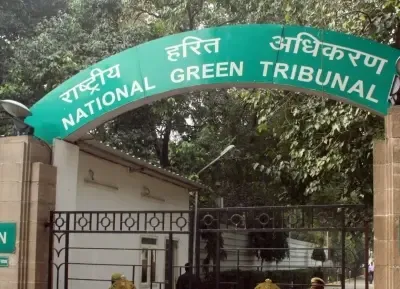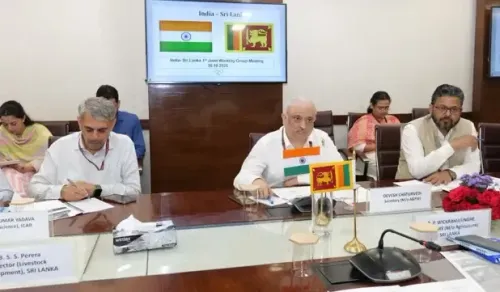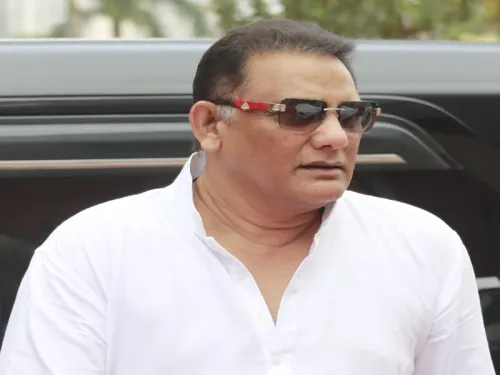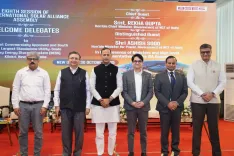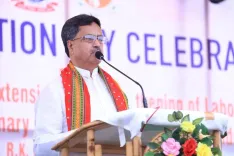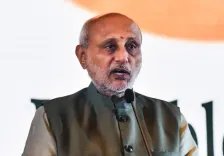Controversy Over USAID India Voter Funding: Who Benefits?

Synopsis
Key Takeaways
- USAID funds have raised concerns about external interference in India's elections.
- Funding allocation of $21M for voter turnout has sparked major controversy.
- The CEPPS website is presently offline.
- Critics point to potential motives behind the funding, especially towards the Congress-led UPA.
- Past financial commitments from USAID to India raise questions about long-term strategies.
New Delhi, Feb 17 (NationPress) A number of questions have emerged regarding the funding from USAID directed towards various NGOs in the nation.
The recently established US Department of Government Efficiency, known as DOGE, which has been auditing multiple government bodies in the US to reduce unnecessary spending, announced on February 16 that they had identified and eliminated $486M from the "Consortium for Elections and Political Process Strengthening", which included $21M allocated for voter participation in India.
This funding was given to the NGO Consortium for Elections and Political Process Strengthening (CEPPS) for their initiative titled 'Voter Turnout in India'. Interestingly, the CEPPS website is currently unavailable.
The revelations made by DOGE have sparked a significant controversy in India, with the BJP labeling the now-retracted funding as external interference in the nation's electoral system.
"$21M for voter turnout? This is undoubtedly external interference in India's electoral affairs. Who benefits from this? Certainly not the ruling party!" stated BJP national spokesperson Amit Malviya on Sunday.
Malviya also pointed out the contentious 2012 Memorandum of Understanding (MoU) between the Election Commission of India and the International Foundation for Electoral Systems, an entity associated with Soros' Open Society Foundation, which is largely funded by USAID -- the US federal body responsible for foreign assistance that is currently facing substantial budget reductions under Donald Trump's administration.
The USAID initiative titled "Elections and Political Processes" aimed to "Encourage genuine competition for ideas and political power through democratic processes that reflect the populace's will".
This situation raises several inquiries, including whether this funding has been part of a long-term strategy to destabilize the country or sway voter opinions. Given that the funding timeline coincides with the Congress-led UPA administration at the national level, accusations have been directed towards the historic party.
In 2013, USAID committed half a million dollars to India under this classification, with CEPPS as the executing partner. These funds were reportedly released monthly around the general elections in India, which took place in 2014. Although funding ceased after the elections, CEPPS continued to finance various projects in India under alternative categories.
Reports indicate that in the Annual Finance Reports of CEPPS for the years 2016, 2017, 2018, and 2019, the amount distributed annually was approximately $320,000. This CEPPS is part of the broader umbrella of IFES (International Foundation of Electoral System), which is funded/partnered with USAID, the US State Department, and Soros' Open Society.
In 2012, the ECI under Dr S.Y. Quraishi as the Chief Election Commissioner, executed an MoU with IFES for collaborative efforts in sharing information, experiences, and research. This involvement entails the exchange of data that is highly valuable in today’s context.
Quraishi has, however, denied any misconduct, confirming the existence of an MoU with IFES. "Yes, there was an MoU with IFES in 2012 when I was CEC, similar to agreements we had with various other organizations and Election Management Bodies to facilitate training for interested countries at ECI's training center, IIIDEM, which was quite new at that time," he explained.
He stated in a post on X, "There was no funding or even a pledge of funding tied to this MoU, let alone a specific amount. The MoU explicitly stated in clear terms that there would be no financial or legal responsibilities for either party."
He also emphasized that this stipulation was reiterated in two distinct areas to eliminate any potential misunderstanding. Any reference to funds in relation to this MoU is entirely false and malicious.
Interestingly, in March 2020, Quraishi had shared a tweet that indirectly hoped Prime Minister Modi would test positive for Covid-19 following his meeting with Brazilian President Bolsonaro during the Republic Day events. Quraishi also shared a photo capturing their handshake.
In May 2023, IFES released a report regarding the role of Dalits in Indian elections. "This report includes a thorough analysis of survey data from Dalits across South Asia addressing election-related topics..." This page is now defunct.
The keywords in this white paper mirrored Rahul Gandhi's speeches concerning 'jiski jitni aabadi' (representation), participation, and influence in Parliament.
The funding trail involved a flow of resources from USAID to CEPPS, a coalition of three major NGOs that subsequently collaborated with various NGOs and organizations globally, redirecting funds into these countries.
A network of NGOs has engaged in multiple projects associated with USAID. This raises pertinent questions regarding the financial influx into the country -- were these primarily intended to shape voter preferences towards a favorable government at the national level, who in the US and India were to reap the benefits, and what advantages could have been anticipated?

